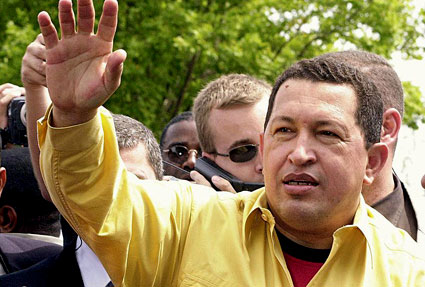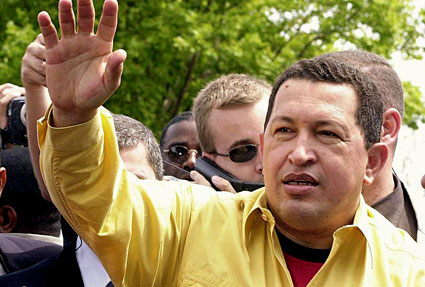Longtime Grist readers might recall reading here about a Mexico-based transnational company called Gruma. I’ve written two articles (in 2006 and 2007) about how, after Mexico’s privatization bonanza in the early ’90s, this well-connected company managed to industrialize one of the world’s greatest foodstuffs, the tortilla, strip it of its flavor and much of its nutrition, and gain a near-monopoly over its production in Mexico.
The company’s canny owner, Roberto González Barrera, did so by using top-level political connections to manipulate policies designed to protect Mexican farmers and consumers. By the time he was done, those protections were gone — and a tortilla empire had been launched. Enter U.S. agribusiness giant Archer Daniels Midland. As I wrote in 2006:
By 1996, Maseca had drawn the attention of Archer Daniels Midland, one of the world’s largest corn brokers. Itself no stranger to government largesse, ADM spotted a good business model from across the border, and bought a 22 percent stake in GRUMA, Maseca’s parent company. Today, ADM’s formidable board chair G. Allen Andreas sits on GRUMA’s board of directors, as does the company’s CFO, Douglas J. Schmalz.
These days, Andreas no longer sits on Gruma’s board, and he stepped down as ADM CEO a couple of years ago. But the companies remain tightly linked. Two ADM execs sit on Gruma’s board, and ADM still holds that 22 percent stake.
 Hugo Chavez in 2003(Agencia Brasil)Since the two companies became intertwined in 1996, Gruma has grown and diversified away from corn products. Although it remains the globe’s largest producer of industrial corn flour and finished tortillas, it also deals in wheat flour and bread. And it has gone global. As Gruma’s website puts it, “GRUMA is the indisputable worldwide leader in corn flour and tortilla production, with operations in United States Mexico, Mexico, Central America, Venezuela and more recently, Europe.”
Hugo Chavez in 2003(Agencia Brasil)Since the two companies became intertwined in 1996, Gruma has grown and diversified away from corn products. Although it remains the globe’s largest producer of industrial corn flour and finished tortillas, it also deals in wheat flour and bread. And it has gone global. As Gruma’s website puts it, “GRUMA is the indisputable worldwide leader in corn flour and tortilla production, with operations in United States Mexico, Mexico, Central America, Venezuela and more recently, Europe.”
Well, you can cross Venezuela off of that list. Get this, from Reuters:
Venezuela decreed the takeover of a local operation of Mexican food-processor Gruma on Thursday as the country’s socialist government tightened its grip on food production amid shortages and soaring inflation.
Gruma’s stock sank as analysts estimated the loss of the local operation, Monaca, might cost the company up to 10 percent of its revenues.
Gruma’s Venezuela operations ran afoul of Hugo Chavez’ government for “refusing to sell flour in April at a time of national shortage,” Reuters reports, adding that the official takeover decree includes “the production, processing and storage of wheat, corn, pasta, rice, oil, oats, seafoods and spices.” The company denies the flour charge, and Reuters doesn’t make an effort to investigate the nature of the dispute or the exact extent of the decree, and it’s impossible to figure out from here. But we do know that Gruma invited similar outrage with its handling of Mexico’s “tortilla crisis,” as I covered in my 2007 piece.
Again, it’s impossible to judge the nature of this dispute from afar, but you can’t blame a country for wresting power over its food system from a foreign corporation clearly more concerned about its own bottom line than the well-being of its host’s citizens and farmers.



